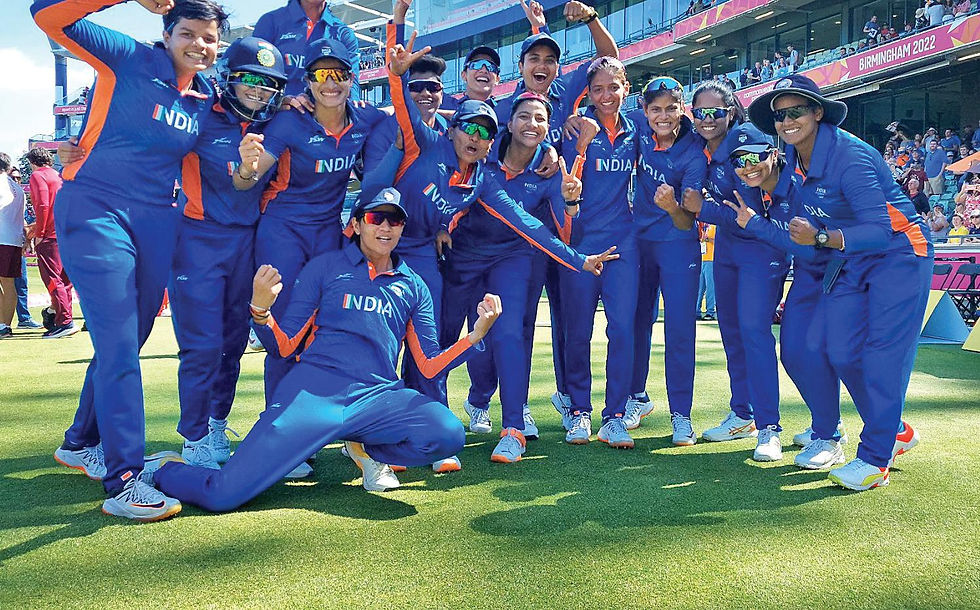Kamila Valieva Skates after Positive Drug Test, Sha’ Carri Richardson Questions IOC's Consistency
- Maggie Tang

- Feb 24, 2022
- 3 min read
Updated: Dec 23, 2024
After 15-year-old record-breaking figure skater Kamila Valieva of the Russian Olympic Committee was suspended by the Russian Anti-Doping Agency for testing positive for Trimetazidine, a banned substance by the International Olympic Committee, the Court of Arbitration for Sport decided to allow her to compete. The catch was that she would not be entitled to a medal. The CAS explained that Valieva is a “protected person” due to her young age, and on the basis that the case is still yet to be thoroughly examined and resolved.
Sprinter Sha’ Carri Richardson, 21, who won the 100m final at the 2021 US Olympic trials, found herself questioning the difference between her case and that of Valieva. Richardson, who was set to partake in the Tokyo Games, received a one-month suspension from the US Anti-Doping Agency after she tested positive for marijuana in July 2021; unlike Valieva, she was not permitted to participate in her anticipated races.

On February 14, Sha’ Carri Richardson took her opinions toTwitter: “Can we get a solid answer on the difference between her situation and mines?” “My mother died and I can’t run and was also favored to place top 3.” She continued to say, “The only difference I see is that I’m a black young lady.”
Trimetazidine is supposed to enhance heart conditions, potentially resulting in better athletic performance. Sadiya Khan, a cardiologist at Northwestern Medicine explained that the drug’s medical purpose is to increase efficiency of the heart to allow for more quality circulation to various organs. Khan states, “If it’s being used in someone who’s healthy and has no blockages, it’s theoretically possible that it may help them exercise for longer or more efficiently, which specifically in an athlete’s case, may give them a false advantage,”
While the World Anti-Doping Agency has issued reports claiming that marijuana has the potential to be performance-enhancing, the evidence for this is disputed. Margaret Haney, a professor of neurobiology at Columbia University, explains that marijuana actually “reduces reaction time and has other effects that would worsen performance.” Three other studies have concluded that marijuana does not put athletes at an advantage, with one even concluding: “Cannabis consumption prior to exercise should be avoided in order to maximize performance in sports.”
In response to Richardson’s claims of unjust treatment, the IOC stated that the two cases, and those of all other individual athletes, are different. An IOC spokesman stated: “You can’t talk about double standards in relation to Russian and American athletes, each case is individual,” adding: “Richardson’s positive doping test was discovered on 19 June, and the result was received before the start of the Olympics. She was suspended for a month. There is nothing in common between these two cases.”
Russian athletes have been known to partake in doping before; in 2019, Russia was officially banned from competing in international sporting events. This decision came after the country was exposed to have a state-sponsored doping programme. Due to a loophole, the country now participates under the name of the Russian Olympic Committee. This year’s dilemma has raised serious questions about what should be done to prevent such incidents from occurring again.
Valieva put on an uncharacteristic display, after she ranked fourth in her long program skate. Thomas Bach, President of the IOC, believes this was most likely due to the tremendous weight placed on her shoulders by this recent turn of events. Thomas Bach followed up with a statement regarding further treatment of “protected-persons”, stating that it needs consultation on two fronts: “One is with regard to WADA, to see whether there is the need to adapt the rules. The other stakeholders are the International Federations over whether the establishment of minimum age of participation is an appropriate measure.”
Bach concluded, "We will initiate such a discussion and at least give them some food for thought."

_edited.png)



Comments